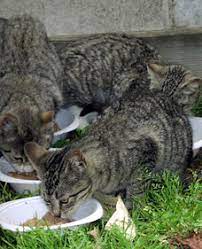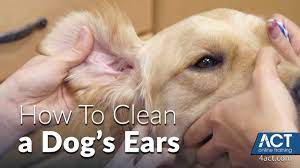Among popular pet dietary supplements, perhaps none are quite so widely-consumed as Omega 3 Fatty Acids For Cats With Kidney Issues. Pet parents have been purchasing this health-boosting substance for years and its widespread usage and popularity on the pet market is only growing with time. One of the things we find with any popular supplement that ends up flooding the market, is an unfortunate fluctuation in quality between the different brands. It’s important to do your research and make sure you’re only buying a reputable brand that is comprised of quality ingredients.
What are Omega 3 Fatty Acids For Cats With Kidney Issues?
Fish oil’s two main ingredients are eicosapentoaenoic (EPA) and docosahexaenoic (DHA) fatty acids. These are both long chains of bonded carbon and hydrogen atoms with a carboxyl group on its end. In nature, EPA and DHA are bonded to a three- carbon backbone structure called glycerol. Together this molecule is called a triglyceride. Fish oil is a triglyceride.
What Are Omega 3 Fatty Acids For Cats With Kidney Issues Good For?
- Heart Protection
Fish oil minimizes the heart’s vulnerability to developing an irregular heart rhythm, called atrial fibrillation. Additionally, it can act as an anti-coagulant and prevent blood clots from forming in cats and dogs with heart issues. - Skin Health
Provides support for dry, flaky skin in pets prone to allergies. Giving fish oil to pets with allergies may reduce their itching by decreasing their body’s production or release of inflammatory-stimulants, called cytokines. - Kidney Health
Helps slow down the progression of kidney disease in cats and dogs. In failing kidneys, fish oil may help regulate blood pressure, prevent undesired protein loss and minimize production of the inflammatory agents responsible for aggravating the kidneys. A study which followed nearly 150 cats with kidney issues found that omega 3 fatty acid supplements helped cats live approximately 10 months longer than those who were not taking them. - Eases Arthritic Pain.
Fish oil decreases prostaglandin production. Prostaglandins are the substances that can cause joint inflammation. Fish oil can help pets feel more comfortable, exhibit more flexibility and agility than those not taking fish oil. - Safeguards Brain Health & Cognition.
Cognitive function is improved in pets who are supplemented with fish oil with numerous studies showing decreased pattern-pacing with a simultaneous increase in recognition of family members. Older pets especially benefit from adding a fish oil supplement. - Decrease In Blood Triglyceride Levels.
High triglyceride levels in the blood can be harmful, worsening chronic conditions such as IBD, pancreatitis and heart issues. Fish oil has been known to have a lowering effect on these levels.
Where to Purchase Your Omega 3 Fatty Acids For Cats With Kidney Issues
- Be very careful about the company you’re ordering from. That goes for all supplements, but is especially relevant to pet supplements like fish oil because pet supplements are not regulated and nutritional supplements, in general, aren’t very well regulated.
- Make sure they offer the highest quantity EPA and DHA. Our own Kidney Shield for Cats & Dogs boasts a whopping 498.4mg of EPA and 472 mg of DHA per serving!
- Steer clear of cod liver oil as it is not recommended, despite being a decent source of vitamins A & D, it falls short when it comes to EPA/DHA levels and simply isn’t as good for pets.
- Similarly, steer clear of flaxseed oil and any other flax sources of fatty acids. They contain high amounts of ALA or alpha linolenic acid which can’t be converted to DHA/EPA by cats at all.
- If it’s in the liquid form, don’t forget to keep it refrigerated and always be mindful of expiration date to achieve maximum benefits.
Omega 3 Fatty Acids For Cats With Kidney Issues are a polyunsaturated fatty acid (PUFA) which are an absolutely vital component of growth, especially because the body can’t create a sufficient supply of ALA/DHA/EPA on its own. This means dietary sources become twice as important. When a dog or cat has developed chronic kidney issues, inflammation becomes the body’s worst enemy and can contribute to the majority of ills faced by your furry friend. Diet alone, unfortunately may not cut it, this is when supplementation becomes key.
Sources of Omega 3 Fatty Acids For Cats With Kidney Issues
Fish and other marine life such as calamari, green lipped mussels, krill and algae are obviously some of the richest sources of Omega 3 Fatty Acids For Cats With Kidney Issues. Many people, however, assume it is the fish themselves who create the oil, but contrary to popular belief, they do not actually generate the oils directly. Fish actually accrue the omega-3s from the prey they consume (i.e., the algae, krill, etc. we mentioned). It’s the active omega-3s in those sources which contain eicosapentanoic acid (EPA) and docosahexaenoic (DHA).
Although there are a few seeds and nuts which also contain omega-3s, they are not comprised of sufficient amounts of EPA/DHA, being higher in ALA which, as stated earlier, isn’t able to convert to EPA/DHA in cats. Our own Kidney Shield formulation draws its rich EPA/DHA content from a variety of coldwater fish such as: mackerel, salmon, sardines, anchovy and herring
How Does It Work Exactly?
Upon being digested, Omega 3 Fatty Acids For Cats With Kidney Issues are absorbed into the cell membranes of the body’s organs, transforming the building blocks ready for metabolism. The resulting changed molecules are far less likely to act as inflammatory agents, leading to less inflammation throughout the body and better-lubricated joints.
Why Fish Oil Is So Important!
The thing about fish oil that really makes it such a superstar supplement for cats is that it helps reduce protein loss through the urine. This also helps lessen hypertension and further helps to keep inflammation to a minimum throughout the body. It’s no coincidence that numerous kidney diets will include high amounts of foods rich in omega-3 fatty acids.
How effective is Fish Oil?
More than other dietary supplements, fish oil has been studied extensively in cats and has been shown to provide benefit for allergies, skin issues, even some kinds of cancers. It is a very safe supplement and one which can go a long way toward helping your little one.
What’s The Ideal Method Of Administering Omega-3 Fatty Acids?
Omega-3s are typically given as either a liquid or capsule. Pilling cats is never easy, as anyone who’s tried knows. Luckily, formulations like our own Kidney Shield for Cats & Dogs comes in an easy-to-dispense pump bottle, where the oil can be applied directly onto their food and blended in. It can take several weeks before the full effects become apparent, but a gradual improvement is typically noticed within the first few days.
Do Omega 3 Fatty Acids For Cats With Kidney Issues Have Any Side Effects?
Omega-3 fatty acids are typically very safe for cats. The side effects that have been observed have been in cases of very high doses. These have ranged from vomiting and diarrhea to oily coat or skin flaking. In severe circumstances, cats can experience changes in blood clotting and inflammation of the pancreas or upset stomach. In these situations, discontinuing the supplement usually resolves any such problems.
Which Cats Should Avoid Omega-3 Fatty Acids?
As stated above, fish oil is generally very well-tolerated. That being said, any cats that have exhibited sensitivity to it should not be forced to take it. Also, this harkens back to the point we made about only obtaining reputable sources of fish oil, as less scrupulous companies will source from areas rich in toxic heavy metals and you don’t want that to be unwittingly consumed by your cats as a result.
If your cat is taking anticoagulants or has any kind of blood clotting issues, fish oil can increase anti-clotting effects and shouldn’t be used. In cats that are pregnant/nursing, diabetic, experiencing diarrhea or who have a history of pancreatitis, it should be used cautiously.
In addition to anticoagulants, drugs like doxorubicin and non-steroidal anti-inflammatory drugs (NSAIDs) may have interactions with Omega-3 Fatty Acids and in these cases, it’s best to defer to your veterinarian’s best judgement. With any supplement, vitamin or herbal therapy, it’s similarly vital to always consult your veterinarian before adding them to your cat’s healthcare regimen.
Remember, pets are family!
Turn on your oldies today on Edgewater Gold Radio! Ask Alexa to “play Edgewater Gold Radio” or listen from our website; Edgewater Gold Radio.com.









